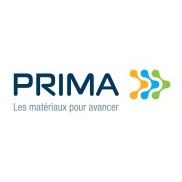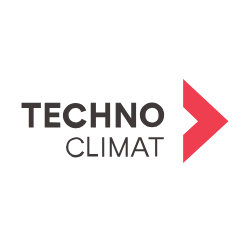
Closed
PRIMA — Call for Projects
Last Update: December 4, 2025
QC, Canada
Funding for collaborative advanced materials R&D projects in Quebec
Grant and Funding
At a glance
Funding available
Financing goals
Reduce the ecological footprint
Integrate new technologies
Eligible Funding
- Maximum amount : 1,500,000 $
- Up to 40% of project cost
Timeline
- Closing date : December 8, 2025
Eligible candidates
Eligible Industries
- Manufacturing
- Transportation and warehousing
- Health care and social assistance
Location
- Quebec
Legal structures
- Non-profit
- Public or Parapublic institution
- For-profit business
Annual revenue
- All revenue ranges
Organisation size
- 250 employees maximum
Audience
- Startups
Non-profit candidates
Sector of operation
- Higher Education
- Research
- Environment
- Economic, Social and Community Development
- Employment and Training
Target groups
- Business owners / entrepreneurs
- Nonprofits / charities
- Academia / students
Revenue structures
- All structures
Scope
- Provincial
- National
- International
Overview
PRIMA — Call for Projects supports collaborative research and development in advanced materials, offering up to $1.5 million in funding for innovation projects. Eligible activities include the development and integration of advanced materials and advanced processes across various Quebec sectors.
Activities funded
- Projects or activities of research and innovation aimed at solving strategic problems for Quebec in important research fields for the province.
- Projects that encourage the creation, development, or consolidation of research and innovation partnerships or networks grouping together academic, institutional, and industrial environments.
- Projects that facilitate the valorization of expertise and results emerging from public research.
- Projects concerning the development of advanced materials applied to Quebec’s key sectors such as transportation, infrastructure, energy, environment, textiles, electronics, and health.
- Formulation and development of advanced materials such as micro/nanoparticles, fibers, engineered wood, biomaterials, concrete, polymer, composite, multifunctional materials, glass, ceramics, metals and alloys, semiconductors.
- Integration of these materials into finished or semi-finished products.
- Advanced processes such as additive manufacturing, surface treatments, multiphysics simulation, modeling, composites and/or polymer shaping.
- Development of characterization instruments for advanced materials.
Examples of admissible projects:
$ 45,000
Launch a community gardening program to improve food security
$ 70,000
Develop an eco-friendly packaging solution for retail
$ 50,000
Installation of solar panels for community energy savings
$ 150,000
Establish a renewable energy training center
$ 70,000
Implement an urban wildlife conservation program
$ 85,000
Develop a mobile app for mental health support
$ 40,000
Create a digital literacy program for seniors
Eligibility
- The application must be submitted by Quebec-based research institutions such as universities, CCTT, or public research centers.
- The projects should involve collaborations with at least one company with a presence in Quebec.
- The applicant's researchers must hold the necessary intellectual property rights required for the project's execution.
- The project must not primarily focus on operational support for an organization or be a subcontract for feasibility studies or commercial activities.
- The project must contribute significantly to the development of advanced materials in Quebec's key sectors like transportation, infrastructure, energy, environment, textiles, electronics, or health.
- Large companies must have a presence in Quebec (research and development or production) and can partner with an academia or a public research center for the project.
- Small and Medium-sized Enterprises (SMEs) with less than 250 employees globally must have a business presence and R&D or production activities in Quebec and collaborate with at least one academic or public research institution.
- Companies should have a Certificate of Francization or equivalent documents from the Office québécois de la langue française if they possess 50 employees or more as of June 2025.
- Foreign and Canadian companies can participate as secondary industrial partners provided they meet conditions.
- Project participants must be members of PRIMA Québec at the time of submission and maintain the membership throughout the project duration.
- Eligible companies must not be registered on the Public Contracts Restricted Register or have failed previous financial obligations with Quebec government assistance.
- Prohibited business sectors include arms production, activities related to fossil energy primarily, gambling, violent sports, sexual exploitation, and tobacco or drug consumption related businesses except certain cannabis and industrial hemp activities.
Who is eligible?
- Collaborative projects between industry and the research community
- Companies involved in transportation and infrastructure
- Energy sectors
- Environmental projects
- Textiles industry
- Electronics companies
- Health sectors
- Universities
- Public research centers
- Companies with R&D or production activities in Quebec
- Small and Medium-sized Enterprises (SMEs) with less than 250 employees
- Large companies with a presence in Quebec
- Industries involved with micro/nanoparticles, fibers, engineered wood, biomaterials, concrete, polymer, and composite materials
- Organizations related to additive manufacturing and advanced materials processes
- Entities focusing on the circular economy
- International companies as secondary industrial partners
- OBNLs as secondary industrial partners, if conditions are met
- Startups with adequate R&D, production capabilities, and compliance with program requirements
- Foreign and Canadian companies as additional partners
Who is not eligible
- Companies with their primary activity involving production or distribution of weapons, except under specific contexts as defined by export control regulations.
- Entities engaged in the exploration, extraction, drilling, production, and refining of fossil fuels, such as petroleum, except activities aimed at transitioning to a low-carbon economy.
- Businesses involved in gambling activities, including casinos, bingo halls, and electronic gaming terminals.
- Enterprises engaged in violent games, combat sports involving living beings, racing, or similar activities.
- Establishments associated with sexual exploitation, such as erotic bars, escort agencies, erotic massage parlors, swinging clubs, or those producing pornographic material.
- Companies involved in the production, sale, and services related to the consumption of tobacco or drugs, except interventions related to cannabis and industrial hemp as specified in the normative framework for 2024-2027 for the PSO of MEIE.
- Organizations with outstanding legal protection under the Companies' Creditors Arrangement Act or the Bankruptcy and Insolvency Act.
- State-owned enterprises or those controlled directly or indirectly by a government, or companies majority-owned by a state entity.
- Entities listed on the Register of Enterprises Ineligible for Public Contracts (RENA) or those failing compliance with francization processes as published by the Office québécois de la langue française.
- Any company that has breached obligations related to financial aid from a Quebec government ministry or agency within the preceding two years.
Eligible expenses
- Salaries, treatments, and social benefits for students, postdoctoral fellows, research assistants, professionals, and technicians.
- Student scholarships.
- Materials, consumables, and supplies.
- Purchase and/or rental of equipment (with purchase under $25k before tax, otherwise should be rented).
- Travel and accommodation expenses within limits, including expenses for international travel by Quebec researchers and students (but not exceeding 15% of total eligible expenses).
- Translation and drafting costs for legal documents for partnership consolidation (maximum $10,000).
- Animal facility and platform fees.
- Subcontracting fees with identified subcontractors not listed in RENA.
- Professional fees with justifications for external services.
- Knowledge dissemination costs, including listing and relevance of conferences.
- Monetary compensation for project participation.
- Prototype development.
- Management and exploitation fees of intellectual property.
- Non-refundable portion of taxes.
- Management fees of PRIMA Québec calculated outside the R&D budget and must be paid by the industrial or other private monetary sources.
Eligible geographic areas
- Companies with a presence in Québec, specifically involved in research and development (R&D) or production.
- Organizations based in Québec, including universities, CCTT (centres collégiaux de transfert de technologie), or public research centers.
- Projects involving large companies with a presence in Québec (R&D or production).
- SMEs established in Québec with R&D or production activities.
- Entities registered or holding a place of business in Québec.
Selection criteria
- For projects at TRL 1-3: The scientific component constitutes 70% of the overall score, divided as follows:
- Scientific quality and feasibility of the project: 30%.
- Training and transfer of knowledge: 30%.
- Innovation and medium-term project impact: 40%.
- The economic relevance component constitutes 30% of the overall score, divided as follows:
- Relevance and alignment with industry and team quality: 50% of the economic component.
- Intellectual property strategy and economic impact for the industry and Quebec: 50% of the economic component.
- For projects at TRL 4-9: The scientific component constitutes 60% of the overall score, divided as follows:
- Scientific quality and feasibility of the project: 20%.
- Training and transfer of knowledge: 40%.
- Innovation and medium-term project impact: 40%.
- The economic relevance component constitutes 40% of the overall score, divided as follows:
- Relevance and alignment with industry and team quality: 50% of the economic component.
- Intellectual property strategy and economic impact for the industry and Quebec: 50% of the economic component.
- To be recommended for funding, a project must achieve:
- A score above 70% on the scientific component.
- A score above 50% on the economic component.
- A combined total score above 70%.
How to apply
1
Attend the information webinar
- Participate in the webinar scheduled for March 5th at 10 a.m.
- Register via the provided link to obtain information on the application process.
2
Submission of the letter of intent
- Prepare a letter of intent detailing the objectives, scope, and expected benefits of the project.
- Submit the letter by April 25, 2025, at noon to demonstrate your interest in the program.
3
Gather the application documents
- Gather all necessary supporting documents, including CVs, letters of support from industry partners, and financial details.
- Ensure that academic and industrial partners are members of PRIMA Québec.
4
Complete the application for the project
- Develop a comprehensive project proposal using the provided application form.
- Include detailed sections on the project context, partnership, justification of the TRL, research plan, and expected impacts.
5
Submit the complete application
- Submit the complete project application by May 26, 2025, at noon.
- Send the application as a single PDF file by email to the designated contact at PRIMA Québec.
6
Wait for the evaluation and feedback
- Your application will be submitted for scientific and economic evaluation by a selected committee.
- Results will be announced by the end of September 2025, along with any necessary follow-ups or modifications.
Additional information
- Management fees for the project are a significant consideration, divided between the industrial partners and MEIE, with specific percentages for SMEs and large businesses.
- Participation requires membership in PRIMA Québec for all industrial, academic, or public research center participants.
- Hydro-Québec can be considered as a partner industrial entity under specific conditions related to project themes and partnerships.
- Adherence to language regulations is necessary, as companies must have their websites in French and comply with francisation requirements if they have 50 employees or more.
- The project must comply with criteria on circular economy objectives, which will become mandatory in future calls; however, exceptions may be requested.
- A contribution in kind is considered differently for SMEs and large enterprises, especially in calculating industrial participation.
- Ineligible participants include those listed on specific Quebec government non-compliance registries, involved with state-controlled entities, or focused on non-aligned activities such as weapon production and certain types of gambling or exploitation sectors.
- Projects should address the establishment of intellectual property agreements among partners to secure funding.
- Funding decisions are under the discretion of the MEIE and subject to budgetary constraints, availability of complementary funding and a signed intellectual property agreement.
- Complementary funding applications should be aligned with PRIMA's deadlines to avoid potential rejection due to prolonged decision processes.
Contacts
michel.lefevre@prima.ca
QC, Canada
Apply to this program
Frequently Asked Questions about the PRIMA — Call for Projects Program
Here are answers to the most common questions about the PRIMA — Call for Projects. This section explains what the program is, how much funding is available, eligibility requirements, application deadlines, and other important details to help you determine if this grant is right for your business.
What is the PRIMA — Call for Projects?
How much funding can be received?
Who is eligible for the PRIMA — Call for Projects program?
What expenses are eligible under PRIMA — Call for Projects?
Who can I contact for more information about the PRIMA — Call for Projects?
Where is the PRIMA — Call for Projects available?
Is the PRIMA — Call for Projects a grant, loan, or tax credit?
Apply to this program
More programs like this

Grant and FundingOpen
ÉcoPerformance — Recommissioning of building mechanical systems
Gouvernement du QuébecFunding to optimize the operation of building mechanical systems

Grant and FundingOpen
Electricity Management Systems
Hydro-QuébecMoney for energy management systems in Quebec

Tax CreditsOpen
Tax holiday for a new business created to commercialize intellectual property
Ministère de l'économie, de l'innovation et de l'énergie du Québec (MEIE)Tax credit for commercialization of intellectual property (IP) in Quebec

Grant and FundingClosed
GHG Challenge Program - Industry
Environnement Québec (MELCC)Supports major industrial projects reducing greenhouse gas emissions

Grant and FundingOpen
Economic development program to help revitalize territories (DEPART)
Investissement Québec (IQ)DÉPART supports economic diversification and growth in targeted areas

Partnering and CollaborationGrant and FundingOpen
Call for collaborative and structuring innovation projects in Quebec's strategic sectors
Gouvernement du QuébecCollaborative innovation funding for Quebec's strategic sectors

Grant and FundingOpen
Innovative Projects Program
Hydro-QuébecSupports innovative, energy-efficient projects for multi-building developments

Grant and FundingOpen
Technoclimat
Environnement Québec (MELCC)Financial assistance for the demonstration of new technologies in Quebec

Partnering and CollaborationGrant and FundingExpert AdviceSuspended
Financial support to assess your energy use Hydro Quebec
Hydro-QuébecUp to $50,000 for energy performance analysis and optimization

Grant and FundingOpen
Enbridge Gas Quebec — Custom-made project
Enbridge Gas QuebecSupports energy-saving projects using natural gas in buildings
Sign up to our platform to access the PRIMA — Call for Projects information sheet for free
Get access to 4,000+ programs, practical guides, personalized alerts, and an AI assistant to support your grant applications.